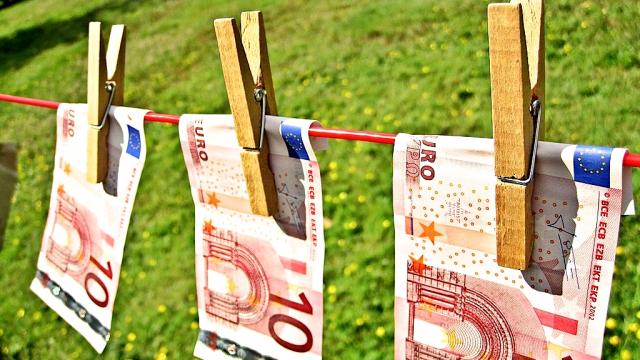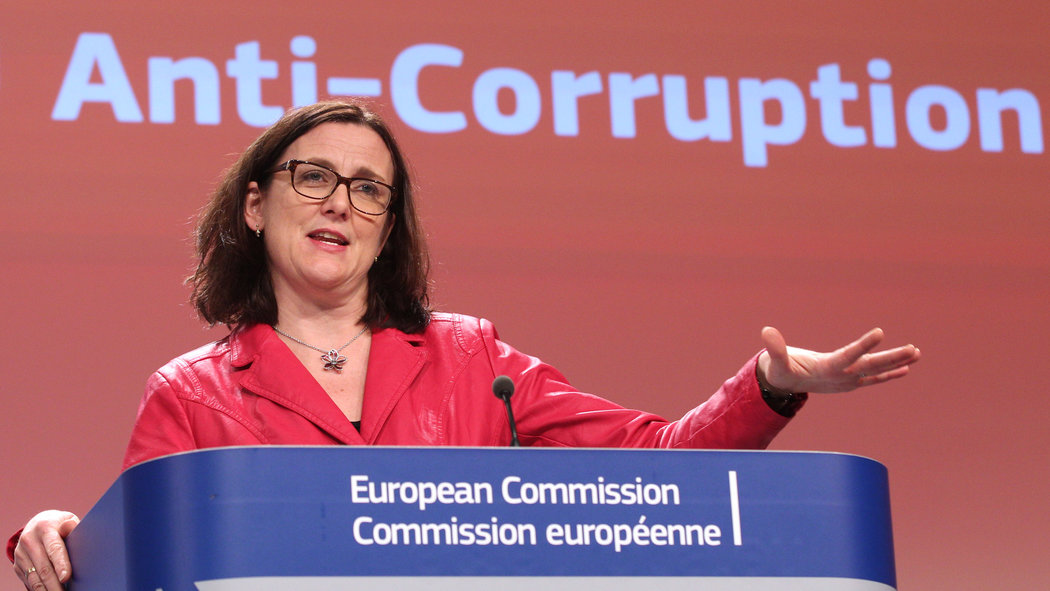
Corruption affects all member countries of the European Union and costs the bloc's economies about $162.19 billion a year, an official E.U. report published Monday said.
European Commissioner Cecilia Malmstrom, who presided over the first-ever official E.U.-wide study on corruption, said the estimated amount lost annually due to padded government contracts, covert political financing, bribes to secure health care and other corrupt practices would be enough to fund the European Union's yearly operating budget.
All 28 E.U. member states suffer from some level of corruption — defined broadly by the report as the "abuse of power for private gain" — the report found.
"There are no corruption-free zones in Europe," Malmstrom said at a news conference. "We are not doing enough. And this is true for all member states."
Across Europe, 76 percent of people said they thought corruption was widespread in their own country. But in Greece, 99 percent of those polled said corruption was prevalent, with Italy (97 percent) and Lithuania, Spain and the Czech Republic (95 percent) right behind.
But when polled on whether they had been asked to or were expected to pay a bribe in the past year, Lithuanians came out ahead, with 29 percent of people reporting that they had been asked to pay bribes.
Meanwhile, 7 percent in Greece, 8 percent in the Czech Republic and 2 percent in Italy said they had been asked to or were expected to pay a bribe in the past year.
Robert Barrington, of Transparency International UK, an anti-corruption organization, told Al Jazeera that the report was "sadly not surprising," adding that it showed that corruption was "not just a problem in emerging markets, but everywhere in the world."
The study did not rank countries according to the prevalence of corrupt practices, but Malmstrom acknowledged some of the "younger democracies" in Eastern Europe face special challenges.
Need for Political Will
As for a solution, Barrington told Al Jazeera that it needed to involve average citizens and, even more importantly, politicians.
"Political will is key. Politicians across the E.U. tend to be weak in the area of corruption. They don't speak out about it," he said.
The report included a breakdown of each E.U. member nation's problems and success stories.
The report found corruption is generally more present at local and regional levels, and that in some E.U. countries it is especially frequent when it comes to obtaining health care services or in the construction and promotion of real estate projects in urban areas.
Inflated government contracts are often another major problem, Malmstrom said. Government-financed procurement of goods and services accounts for 20 percent of all spending in the European Union, the commissioner said, and studies indicate that up to a quarter of the money expended may be siphoned off by corruption.
As for the private sector, four of 10 companies quizzed in one survey consider corruption an obstacle to doing business in the E.U., Malmstrom said.
The money Europeans pay in taxes is too often misspent to purchase goods and services that don't give citizens a proper return for their money, she said.
"A huge amount of money is lost here," she said. "If you don't condemn corruption because it's immoral and how it erodes democratic legitimacy, at least for economic reasons, there is good case to do more."
3 WAYS TO SHOW YOUR SUPPORT
- Log in to post comments
















